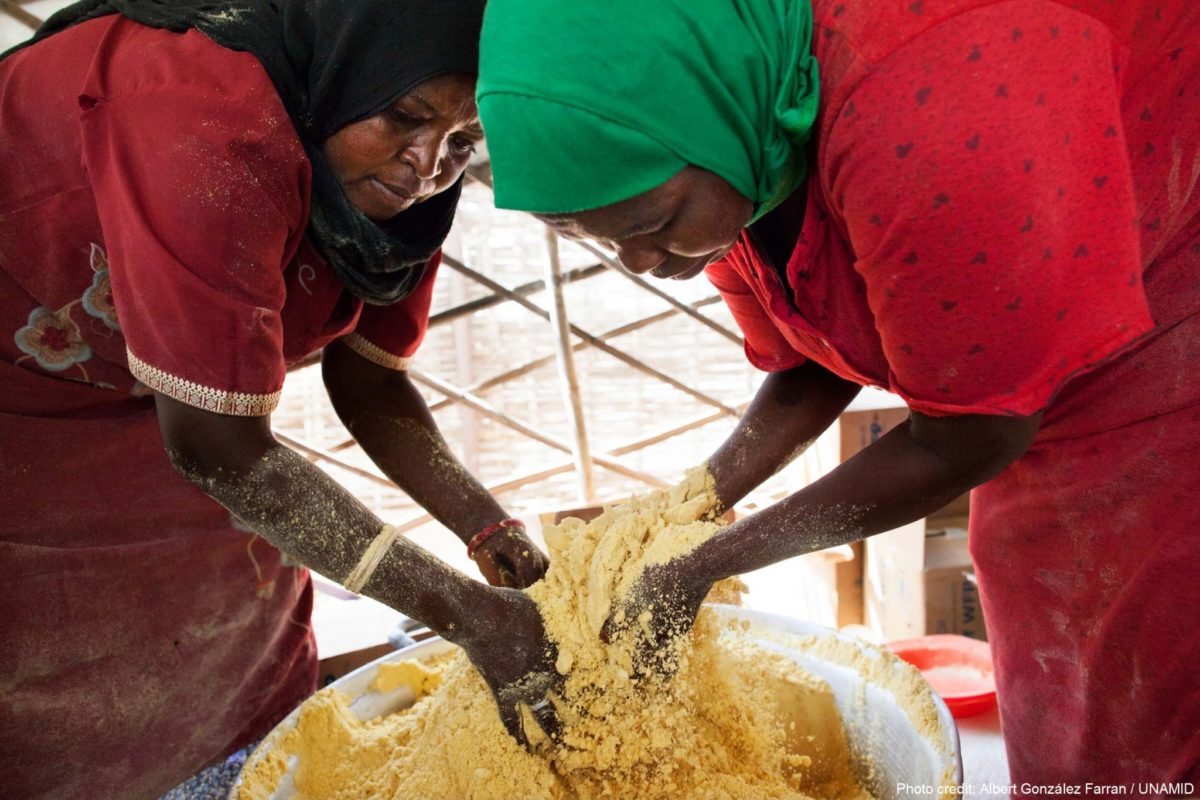2020 Global Nutrition Report: 5 Key Takeaways

Following includes some text verbatim from the Global Nutrition Report, which can be accessed in its entirety here.
The 2020 Global Nutrition Report goes beyond global and national patterns to reveal “significant inequalities in nutrition outcomes within countries and populations.” The 2020 Global Nutrition Report calls for a transformative “pro-equity agenda” that puts people and their basic needs first by fully integrating nutrition into food and health systems. This requires coordinated efforts across stakeholders and scaled-up, sustainable financing to support focused action where it is needed most. This approach would ensure equitable access, because “Everyone deserves access to healthy, affordable food and quality nutrition care.”
The Executive Summary is excellent, but if you have only 3 minutes to catch the highlights, read on. We encourage you to dig deep into the report for the data, analysis and expert opinions rooted in evidence to understand why action on equity is needed to accelerate progress towards ending malnutrition in all its forms
The trend is clear: progress is too slow to meet the global targets. Not one country is on course to meet all 10 of the 2025 global nutrition targets and just eight of 194 countries are on track to meet four targets.
Among children under 5 years of age, 149 million are stunted, 49.5 million are wasted and 40.1 million are overweight. There are 677.6 million adults that have obesity.
Poor diets and resulting malnutrition are among the greatest current societal challenges, causing vast health, economic and environmental burdens.
The better news: there are bright spots. For example, rates of stunting are gradually decreasing over time. And there has been progress on exclusive breastfeeding. More than 42% of infants under 6 months are being exclusively breastfeed (EBF). The report identifies that 41 countries are ‘on course’ for childhood overweight, 40 for wasting and 31 for stunting; 33 countries are ‘on course’ for exclusive breastfeeding, and only 12 for low birth weight.
Pro-equity nutrition action could truly ‘leave no one behind’. Decision-makers and policymakers need to consider how inequities in social protection services, such as housing, education, and clean water and food access, are driving inequities in nutritional outcomes across gender, economic, and geographical contexts. ‘Pro-equity’ nutrition actions include recognizing that variations exist across countries and within countries, across socioeconomic groups and within households; focusing funding and attention on health consequences for the most marginalized; and examining the gender and environmental links across all aspects of nutrition program and policy design. All this will require strengthened governance, support and legitimacy for civil society, and an accountable private sector.
COVID-19 does not treat us equally. Reports like this take months to develop, and the authors did an excellent job preparing a foreword highlighting the global pandemic’s impact. The report states: “People who already suffer as a consequence of inequities – including the poor, women and children, those living in fragile or conflict-affected states, minorities, refugees and the unsheltered – are particularly affected by both the virus and the impact of containment measures. COVID-19 also exposes the vulnerability and weaknesses of our already fragile food systems, as well as wreaking havoc on health systems.” The report calls for strengthened coordination, alignment, financing and accountability.
The Nutrition for Growth Summit is an opportunity we must not miss! “Increased global recognition that governments, businesses and civil society are accountable for healthier and more equitable food and health systems provides an opportunity for us to invest in nutrition to preserve our future.” Over the next two years, there are key opportunities to prioritize nutrition in policy agendas and to rethink our food and health systems. These include the Tokyo Nutrition for Growth Summit (N4G), the 2020 UN Climate Change Conference (to be held in 2021) and the 2021 Food Systems Summit.
The Global Nutrition Report is especially an important body of work for us at 1,000 Days. We know that investing in the well-being of mothers, babies and toddlers pays off big, now and into the future. The first 1,000 days are a time of tremendous potential and enormous vulnerability. How well or how poorly mothers and children are nourished and cared for during this time has a profound impact on a child’s ability to grow, learn and thrive. We stand united calling for greater investments in the nutrition and well-being of mothers, babies, and toddlers as a way to create brighter and more prosperous futures for us all.
